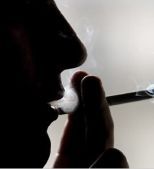Harmful Effects of Hookah Smoking Unknown to Young Adults
Many young smokers are unaware of the adverse health effects associated with hookah smoking.

In a cross-sectional study aimed at gauging young adults’ attitudes toward hookah smoking, researchers from the University of California Los Angeles (UCLA) discovered many young smokers are unaware of the adverse health effects associated with the practice.
In light of the US Centers for Disease Control and Prevention (CDC) warning that hookah smoking can be just as dangerous as cigarette smoking, the research findings add to the mounting evidence on hookah’s harmful effects, according to a statement from UCLA. Despite those warnings, previous studies reported an increase in hookah use, especially among college students.
Visiting hookah lounges in Southern California, the investigators asked 91 hookah smokers aged 18-30 years about their “perceptions, attitudes, beliefs, initiation, and frequency” of hookah use. Their results, which were published in the July/August 2014 issue of Nursing Research, showed the young adults’ consensus on the water pipes is misguided.
Overall, 57% of the participants believed hookah smoking posed no health risks. When they were questioned further, 47% claimed hookah was not harmful because the smoke was filtered through water in the process, and 35% concluded the fruit used to flavor hookah acts as a detoxifying agent. While not as common, 16% of young adults believed the tobacco used in hookah smoking does not have nicotine, making it non-addictive.
Furthermore, the researchers reported 60% of the participants preferred hookah over cigarettes because it offers a social opportunity. Alarmingly, 43% of those who understood that the practice is harmful deemed the social aspect of hookah smoking as more important than potential health risks.
"This study underscores the urgent importance of more research and campaigns to increase public knowledge on the dangers of hookah smoking, especially among young adults," lead study author Mary Rezk-Hanna, a UCLA nursing doctoral student, commented. By grasping the public’s attitudes toward hookah, healthcare professionals can provide adequate prevention and cessation methods, Rezk-Hanna added.